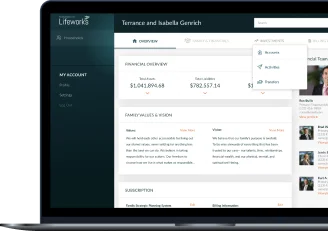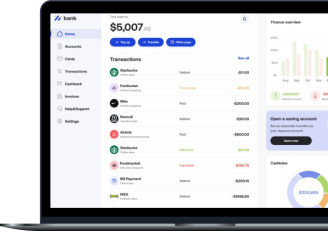PCI compliance consulting services
-
Develop a tailored roadmap outlining specific steps and timelines for achieving and maintaining PCI DSS compliance
-
Implement robust security measures and controls aligned with PCI DSS requirements to detect and respond to cyber threats in real time
-
Receive ongoing maintenance and support throughout the compliance journey and maintain cybersecurity resilience
-
Educate your employees and ensure awareness of security best practices with tailored incident response training
Value we have delivered to our clients
-
QSA services
for validating PCI compliance
-
40%
revenue growth with protected payment systems
-
60+
clients have achieved PCI compliance
-
8/10
Net Promoter Score among FinTech clients
Your journey with Yalantis
-
01
Defining essential PCI requirements for your project.
Consult with our team to determine PCI DSS requirements for your product and determine the level of PCI compliance, which is based on the number of annual transactions.
-
02
Planning and Implementation
We work with you to outline a remediation roadmap and address identified gaps. Then we offer our guidance in implementing necessary changes in alignment with PCI standards.
-
03
Validation and reporting
Yalantis consultants manage security assessments to validate compliance efforts, followed by detailed documentation and reports to demonstrate compliance to relevant stakeholders.
-
04
Ongoing monitoring and support
We establish processes for ongoing compliance monitoring aimed at improving your security posture and helping you stay ahead of regulatory changes.
Yalantis PCI compliance consulting services
Yalantis is a qualified security assessor that can assist you in navigating PCI DSS compliance requirements at each step of the software development timeline, from initial assessment to post-release support. Aside from building compliant solutions, we offer guidance on choosing third-party vendors that won’t compromise your data security.
-
PCI DSS readiness assessment and scoping
-
Initial business architecture and IT infrastructure assessment
-
Determination of the scope of PCI compliance services
-
Identification of gaps between current practices and PCI DSS requirements
-
-
Gap analysis and remediation planning
-
Thorough assessment of existing security measures vs PCI DSS standards
-
Priority mapping of remediation efforts based on impact
-
Collaboration with stakeholders to develop a tailored remediation plan
-
Identification of resources and budget required for remediation activities
-
Integration of remediation tasks into existing project plans and timelines
-
Regular progress tracking and reporting to ensure timely completion of remediation efforts
-
-
Policies and procedures development
-
Customization of policies and procedures to align with PCI DSS requirements
-
Creation of clear and concise documentation to guide employees on security practices
-
Incorporation of industry best practices and regulatory guidelines into policy development
-
Policy review and approval process
-
Training sessions to familiarize employees with new policies and procedures
-
Ongoing policy updates and revisions according to regulatory changes or security threats
-
-
External and internal security testing
-
External testing including vulnerability scanning and social engineering assessments
-
Vulnerability scanning using manual or automated tools
-
Documentation of findings, including severity ratings and recommendations for remediation
-
Collaboration with IT and security teams to promptly address identified vulnerabilities
-
Continuous monitoring and periodic retesting to ensure ongoing security
-
-
Penetration testing
-
Identification of potential entry points into the organization’s systems and networks
-
Simulation of real-world attacks to test the effectiveness of security controls
-
Use of ethical hacking techniques to pinpoint vulnerabilities
-
Evaluation of response procedures to simulated breaches
-
Reporting of findings, including recommended mitigations and improvements
-
Follow-up assessments to validate implementation of recommended controls and verify security posture improvements
-
-
PCI DSS training
-
Employee security awareness training
-
Role-based compliance training sessions
-
Developer training on secure coding practices
-
Executive leadership briefings on PCI DSS
-
Customized training workshops
-
Training material development services
-
PROTECT CARDHOLDER DATA BY BUILDING A PCI-COMPLIANT SOLUTION
Consult with Yalantis specialists to determine a long-term strategy for embedding and establishing PCI compliance practices
PCI consulting solutions delivered by Yalantis
EVALUATE YOUR SOLUTIONS FOR MEETING PCI DSS COMPLIANCE CRITERIA
Discuss your idea with the Yalantis PCI consulting team and figure out how to introduce security best practices into your product
Insights from Yalantis

FinTech compliance: Why it’s a must for engineering teams you’re going to hire
Discover why FinTech compliance is essential for your business and why your engineering team must know all the nuances to ensure you operate legally and securely.

Payment P2P app development: what to keep in mind before creating or improving an app like Cash App
Learn from the mistakes and successes of leading P2P payment apps like Cash App, Venmo, and Zelle. You’ll discover how to build a P2P payment app and make it secure, popular, and alluring.

What it takes for a traditional banking institution to go digital
Reveal the subtleties of digital transformation for banks: challenges you need to overcome, benefits you’ll get, technologies you can use, and success factors.
FAQ
What is PCI DSS?
PCI DSS is the Payment Card Industry Data Security Standard. While it’s called a “Standard”, it is actually a set of standards, developed by PCI Security Standards Council and designed to ensure that all companies involved in accepting, processing, storing, and transmitting credit card information maintain a secure environment.
PCI data security standard aims to protect customer data from theft and fraud by implementing various security measures such as network firewalls, encryption, access controls, and regular security testing. Compliance with PCI DSS is compulsory for any organization involved in handling payment card data, and non-compliance can result in fines and reputational damage.
Is PCI compliance required by law?
While PCI compliance is not a legal requirement, it is mandated by major credit card companies including Visa, Mastercard, American Express, Discover, and JCB International. These companies require merchants and service providers that handle payment card data to comply with PCI DSS standards.
What does a PCI compliance consultant do?
PCI compliance consultants assist businesses in achieving and maintaining compliance with PCI standards. Their responsibilities include:
- assessing the organization’s current security posture
- identifying gaps in compliance, such as unencrypted sensitive data, outdated security policies, or software vulnerabilities
- developing and implementing strategies to achieve compliance
- conducting security training for employees and coordinating with third-party vendors
- helping with the documentation and reporting required for validating compliance
Yalantis PCI consultants also offer ongoing support to help organizations ensure continued adherence to and navigate any changes to PCI DSS requirements.
How many PCI DSS compliance levels are there?
The PCI standard has four compliance levels, which are determined based on the number of transactions processed annually by a merchant or service provider:
- Level 1. Merchants or service providers that process over 6 million transactions annually.
- Level 2. Merchants or service providers that process from 1 million to 6 million transactions annually.
- Level 3. Merchants or service providers that process 20,000 to 1 million e-commerce transactions annually.
- Level 4. Merchants or service providers that process fewer than 20,000 e-commerce transactions annually, and all merchants that process up to 1 million transactions (not e-commerce) annually.
Each level has its own set of requirements for validating compliance, ranging from self-assessment questionnaires to on-site audits conducted by Qualified Security Assessors (QSAs).
What happens if a company isn’t PCI compliant?
Non-compliance with PCI standards can have serious consequences:
- Fines and penalties. Regulatory bodies and credit card companies may impose sanctions and penalties on non-compliant businesses.
- Legal liability. Non-compliance may result in legal action from affected parties, such as customers or financial institutions, leading to costly lawsuits, settlements, and reputational damage.
- Data breaches. Without establishing a PCI DSS compliant environment, financial businesses are at a higher risk of data breaches, which can result in theft of sensitive cardholder information, financial fraud, and loss of customer trust.
- Loss of business. Non-compliance can lead to loss of business opportunities, as customers may choose to avoid having business with a service provider due to concerns about its security and trustworthiness.
You can avoid these risks by choosing to work with PCI compliance experts and integrating security practices throughout your software development life cycle. Partner with Yalantis specialists today and define a strategy that aligns with your business objectives.
How can my business benefit from a Yalantis PCI compliance consultant?
Working with a Yalantis PCI DSS consultant offers more benefits than simply helping your business meet strict PCI requirements:
- Expert guidance. Yalantis consultants provide specialized knowledge and expertise in PCI DSS requirements, helping your organization effectively navigate compliance complexities.
- Risk mitigation. We are experts in identifying and mitigating security risks, reducing the likelihood of data breaches, financial losses, and non-compliance penalties.
- Cost savings. Yalantis consultants can work with your business on optimizing compliance efforts and minimizing the financial impact of fines, penalties, and reputational damage due to non-compliance.
- Enhanced security. Our PCI consulting team assists you in establishing multi-layered security measures, including encryption and access controls, to protect customer data.
SEEKING EXPERT PCI COMPLIANCE CONSULTING SERVICES?
Partner with Yalantis to ensure proper sensitive data management at each step of the software development life cycle
What PCI compliance consultant services does Yalantis provide?
Aside from PCI DSS consulting, Yalantis experts can provide guidance on achieving compliance with other PCI standards, such as:
- PA-DSS (Payment Application Data Security Standard). This standard applies to software vendors and developers who create payment applications that store, process, or transmit payment data. It ensures that these applications are secure and store sensitive data properly.
- PCI PTS (Payment Card Industry PIN Transaction Security). This standard applies to hardware devices used in processing PIN-based transactions, such as point-of-sale terminals and PIN pads. It ensures that these devices meet security requirements for protecting sensitive PIN data.
- PCI P2PE (Payment Card Industry Point-to-Point Encryption). This standard focuses on data encryption from the point of capture (e.g., at a card reader or point-of-sale terminal) until it reaches the payment processor or acquiring bank. Encryption reduces the risk of data breaches by protecting it throughout the transaction process.
- PCI SSF (Payment Card Industry Software Security Framework). This framework provides guidelines for secure software development practices within the payment industry. It covers various aspects of software security, including secure coding practices, vulnerability management, and secure software lifecycle management (data lifecycle management).
Moreover, a Yalantis PCI consultant can assist you in developing software solutions using best practices and components from the global PCI compliance framework, including:
- PCI scoping. Determining the scope of PCI compliance involves identifying all systems, processes, and people within an organization that are involved in handling payment data. Proper scoping is essential for accurately assessing compliance requirements.
- PCI compliance validation. PCI compliance can be validated through various types of assessments, including self-assessment questionnaires (SAQs) for smaller merchants, external audits by qualified security assessors (QSAs), and internal assessments for larger organizations.
- PCI 3D Secure (3DS) authentication protocol. PCI 3DS is designed to add an additional layer of security for online credit and debit card transactions. It allows card issuers to authenticate cardholders during online transactions by prompting them to enter a password or other form of authentication. This reduces the risk of fraudulent activities and increases confidence among both merchants and consumers.
What are requirements for achieving PCI compliance?
To become PCI DSS compliant, your organization or business has to meet 12 essential requirements. They ensure that robust security measures are implemented to protect financial data.
Yalantis PCI consultants can help you meet all 12 PCI compliance requirements and implement appropriate security controls.
- Install and maintain network security controls. Firewalls are essential for controlling access to payment data and preventing unauthorized network traffic.
- Apply secure configurations to all system components. Default passwords and settings are often easy targets for attackers. It’s crucial to change these defaults to strong, unique passwords and configurations.
- Protect stored cardholder data. Cardholder data should be encrypted when stored, whether on disk, in databases, or in other storage mediums.
- Encrypt transmission of financial data across open, public networks. Whenever such data is transmitted over networks, it should be encrypted using strong encryption protocols and algorithms to make data more secure.
- Protect systems and networks from malicious software. Antivirus software helps detect and remove spyware, malware, and viruses that could compromise user data security. Regular updates and other controls ensure protection against the latest threats.
- Develop and maintain secure systems and software. Organizations should implement secure coding practices, perform security updates, and conduct regular vulnerability assessments to identify and address security flaws in systems and applications.
- Restrict access to system components and financial data by business need to know. Access to data should be limited to only those individuals who require it to perform their job duties.
- Identify users and authenticate access to system components. Each user accessing systems that handle payment data should have a unique user ID to track and monitor their activities. This helps enforce accountability and traceability.
- Restrict physical access to cardholder data. Physical access to networks and storage areas containing cardholder data should be restricted to authorized personnel only. Physical security measures such as locks, access controls, and surveillance help prevent unauthorized access.
- Log and monitor all access to system components and customer data. Logging mechanisms should be implemented to record and monitor all access to systems, networks, and cardholder data. These logs should be regularly reviewed for suspicious activities or unauthorized access attempts.
- Test security of systems and networks regularly. Organizations should conduct regular security testing, including vulnerability scanning, penetration testing, and security assessments, to identify and address potential weaknesses in their security controls.
- Support information security with organizational policies and programs. Organizations should develop and maintain comprehensive security policies that address all angles of information security, including employee training, incident response, risk management, and compliance with PCI DSS requirements.
Contact us

got it!
Keep an eye on your inbox. We’ll be in touch shortly
Meanwhile, you can explore our hottest case studies and read
client feedback on Clutch.

Lisa Panchenko
Senior Engagement Manager
Your steps with Yalantis
-
Schedule a call
-
We collect your requirements
-
We offer a solution
-
We succeed together!



